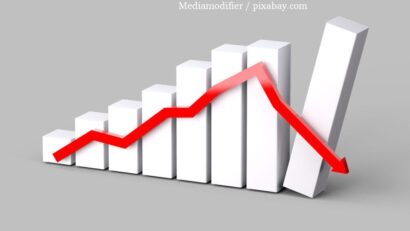Fewer and Fewer Romanians
“The reduction of the resident population is not a phenomenon that we encounter in Romania alone, it is a phenomenon encountered in most Eastern European countries, and even in developed western countries. Unfortunately, in Romania, Bulgaria, and Croatia the drop in population numbers is much greater than in the rest of the countries in the east of the continent. The causes are multiple, and we should look for them in the various stages of the transition. The first was that in the first period of the transition we had high levels of migration. These levels went down in the second stage, beginning in 2012-2013, but we also have the issue of births and deaths. Let us not forget that birth and death rates are very complex phenomena, which have some rigidity, they are slow to change, and usually there is a leap in time. What happened in the first period of transition resonates nowadays. So these are, in broad strokes, the two very important factors: migration and natural factors. 30 years of transition meant equally a change in the behavior of the population regarding a first birth within the family related to the number of children being born into a family.

Corina Cristea, 02.02.2023, 18:38
The fact that was obvious to everyone was confirmed officially by the results of the most recent census: Romania is in demographic decline. The difference with the census before this one is 1.1 million people less, while the difference with the 1990 census is 4 million inhabitants less. The main causes are migration to western countries, in addition to a drop in birth rates. Raw numbers show that the Romanian population fell by over 5% compared to 2011. Compared to 2002, it fell by 12%, and in 2021 it reached the level of the year 1966. The phenomenon is not unique to Romania, it is present all over Eastern Europe, but it is equally worrying everywhere. Tudorel Andrei, president of the National Institute of Statistics, spoke to Radio Romania about the results of the census, saying that they show a speeding up in the drop of population numbers, also indicating an aging of the population at the same time:
“The reduction of the resident population is not a phenomenon that we encounter in Romania alone, it is a phenomenon encountered in most Eastern European countries, and even in developed western countries. Unfortunately, in Romania, Bulgaria, and Croatia the drop in population numbers is much greater than in the rest of the countries in the east of the continent. The causes are multiple, and we should look for them in the various stages of the transition. The first was that in the first period of the transition we had high levels of migration. These levels went down in the second stage, beginning in 2012-2013, but we also have the issue of births and deaths. Let us not forget that birth and death rates are very complex phenomena, which have some rigidity, they are slow to change, and usually there is a leap in time. What happened in the first period of transition resonates nowadays. So these are, in broad strokes, the two very important factors: migration and natural factors. 30 years of transition meant equally a change in the behavior of the population regarding a first birth within the family related to the number of children being born into a family.
For many women, career comes first now more than two or three decades ago. Professional and educational opportunities have been on the rise, time spent in school is longer, so women decide to have children later in life. At a family level, high incomes count more in the decision to have a child, and high paid professional positions come at a high cost in terms of time and energy. Therefore, more than half of couples in Romania decide to have only one child. Tudorel Andrei said that he was struck by the drop in the population between 15 and 64 years of age. With a drop of 1.4 million, this age group went down in number from 68% in 2011 to 64%. He said that this was the most important takeaway from the census. We asked him what can be done to halt, or even reverse, this phenomenon:
“If we only look at international migration, it indeed went down very much in the last five or six years. In the first years after joining the EU, 2007 and 2008, migration was very high, as high as half a million per year. Today, international migration is not as high. Unfortunately, the natural factor, at least in 2021, was the major factor in the drop in resident population. Let us not forget that the phenomenon of birth, as well as that of death, are very complex, and we cannot change them overnight. We have to have patience. If we want to have a change in the behavior of the population in the near future, we have to wait for results in 10, maybe 20 years, we cannot expect results overnight. This happened once more in the history of Romania, in 1967. That was possible because we were a totalitarian society. We saw the results around 2006-2007, when the population born between 1967 and 1969 migrated to a high degree to the west of the continent.
The loss of 4 million citizens in three decades is already being felt negatively in the job market, especially in the hospitality industry and construction, where there is a sore need of employees. Also affected is the pension system, considering that Romania is far from the ideal and sustainable ratio of four workers to one pensioner. In Romania, 10 salaried workers support 9 pensioners. We asked ourselves what happens if things stay on this throughline. In terms of pensions, in 2030 the budget will become unable to support seniors, according to finance analysts. On the other hand, the health crisis will alleviate, savings will recover, and developed western countries will once again need workhands, mostly obtained from Eastern Europe. Also in 2030, Romania’s resident population could be around 18 million, according to the National Institute of Statistics. Thus, Romania stands to go down the European list in terms of population, going to seventh place instead of sixth, overtaken by The Netherlands.






























